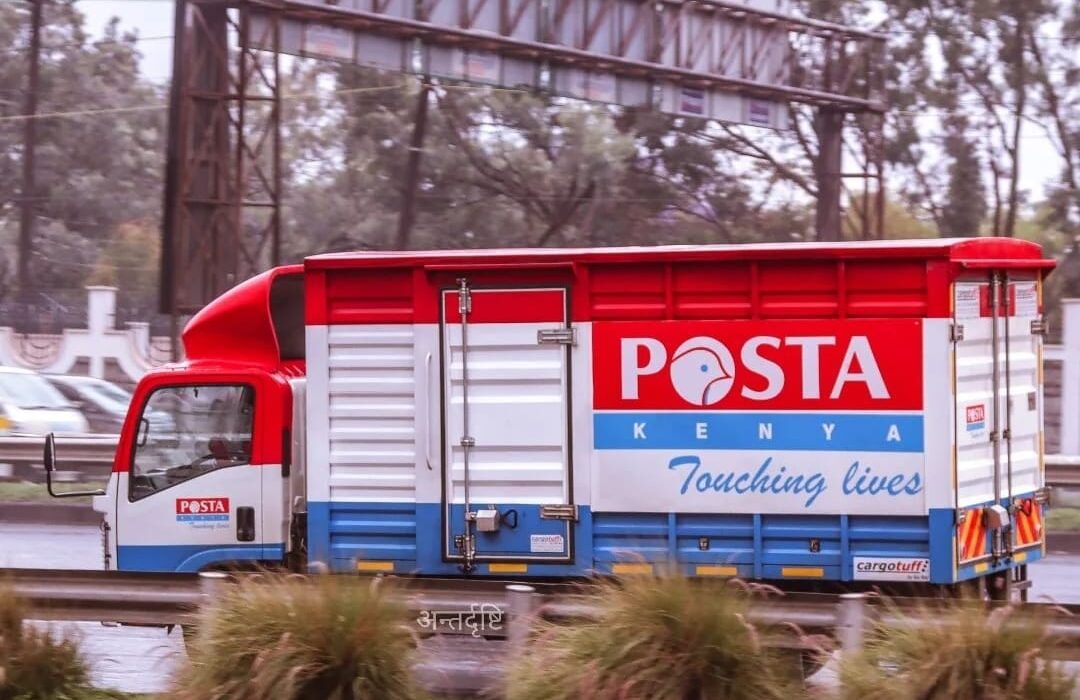Kenya’s import sector is a vital component of its economy, with the Port of Mombasa and Jomo Kenyatta International Airport (JKIA) serving as primary gateways for sea and air freight. Navigating the complexities of customs clearance and forwarding can be daunting, especially for businesses and individuals importing goods. The Postal Corporation of Kenya (PCK), through its Posta Cargo service, offers a streamlined solution for clearing and forwarding, with rates based on the Cost, Insurance, and Freight (CIF) value of goods. This article provides an in-depth exploration of Posta Kenya’s clearing and forwarding rates, procedures, and practical insights to help importers optimize their logistics processes.
What is Posta Kenya’s Posta Cargo Service?
The Postal Corporation of Kenya (PCK) has evolved beyond traditional mail services to offer comprehensive clearing and forwarding solutions under its Posta Cargo brand. Registered as a clearing agent by the Kenya Revenue Authority (KRA), PCK facilitates seamless logistics for both sea and air freight imports and exports, including Full Container Load (FCL), Less Container Load (LCL), Roll-on/Roll-off (RORO) vehicles, and bulk cargo. The service is designed to simplify customs clearance, particularly for e-commerce customers importing through Posta Parcel and Express Mail Service (EMS).
Why Choose Posta Cargo?
- One-Stop Shop: PCK handles all aspects of customs clearance, from documentation to tax payments, eliminating the need for external agents.
- Accessibility: With over 285 acceptance centers nationwide, PCK offers convenient access to clearing services.
- Track and Trace: EMS services include tracking for over 75 countries, ensuring transparency in shipment monitoring.
- Cost-Effective Rates: Rates based on CIF value provide predictability, especially for high-value goods.
This service is particularly beneficial for small businesses and individuals importing goods from global e-commerce platforms like Alibaba and Amazon, as it reduces the hassle of navigating KRA offices or coordinating with multiple logistics providers.
Understanding CIF Value and Its Role in Customs Clearance
The CIF value is a cornerstone of Kenya’s customs valuation process, representing the total cost of goods, including:
- Cost: The price of the goods as per the commercial invoice.
- Insurance: The cost of insuring the shipment during transit.
- Freight: The cost of transporting the goods to the port or airport of destination (e.g., Mombasa or Nairobi).
Kenya calculates import duties and taxes based on the CIF value, making it critical for importers to accurately declare this amount to avoid penalties or delays. The KRA uses the CIF value to assess duties, Value Added Tax (VAT), Import Declaration Fee (IDF), and Railway Development Levy (RDL). Posta Kenya’s clearing and forwarding rates are also structured around the CIF value, with different rates for sea and air freight based on the consignment’s declared value.
Posta Kenya Clearing and Forwarding Rates: A Detailed Breakdown
Posta Kenya’s rates are categorized based on the mode of transport (sea or air freight) and the CIF value of the goods. Below is a comprehensive breakdown of the charges, exclusive of VAT, as provided by PCK.
Category A: Goods Imported Through Sea Freight
For goods arriving at the Port of Mombasa, Posta Kenya applies the following rates:
- Goods Valued Above Ksh. 20 Million (CIF): 0.2% of CIF value.
- Example: For a consignment with a CIF value of Ksh. 25 million, the clearing fee is Ksh. 50,000 (0.2% of 25,000,000).
- Goods Valued Up to Ksh. 20 Million (CIF): 0.4% of CIF value.
- Example: For a CIF value of Ksh. 10 million, the fee is Ksh. 40,000 (0.4% of 10,000,000).
- Goods with No Declared Value: Minimum Ksh. 15,000 per consignment.
- This applies to shipments lacking an invoice, where KRA may use alternative valuation methods.
- IDF Fee Application: Ksh. 2,000.
- Required for all commercial imports, processed through Orbus or Kentrade systems.
- Handling Fees: Ksh. 2,500.
- Covers handling at the port or Container Freight Station (CFS).
- Documentation: Ksh. 2,000.
- Includes preparation and submission of customs entries via the Simba System.
- Stripping/Verification for 20ft Container: Ksh. 1,000.
- Charged for physical inspection of containers.
- Stripping/Verification for 40ft Container: Ksh. 1,500.
- Higher due to the larger container size.
- Disbursement Fees: 3% of the disbursement amount.
- Covers funds advanced for duties, taxes, or other charges.
Category B: Goods Imported Through Air Freight
For air freight arriving at JKIA or other airports, the rates are:
- Goods Valued Above Ksh. 20 Million (CIF): 0.2% of CIF value.
- Example: A CIF value of Ksh. 30 million incurs a fee of Ksh. 60,000.
- Goods Valued Up to Ksh. 20 Million (CIF): 0.4% of CIF value.
- Goods Valued Above Ksh. 3 Million (CIF): 0.4% of CIF value.
- This overlaps with the previous tier for clarity in pricing.
- Goods Valued Up to Ksh. 3 Million (CIF): 0.6% of CIF value.
- Example: A CIF value of Ksh. 2 million results in a fee of Ksh. 12,000 (0.6% of 2,000,000).
- Goods with No Declared Value: Minimum Ksh. 5,000 per consignment.
- IDF Fee Application: Ksh. 2,000.
- Airport Handling Fees: Billed at cost.
- Varies based on airline or handling agent charges.
- Documentation: Ksh. 2,000.
- Airport Storage: Billed at cost.
- Depends on storage duration and weight.
- Disbursement Fees: 3% of the disbursement amount.
Additional Notes on Charges
- VAT Exclusion: All listed charges are exclusive of 16% VAT, which is added to the total cost.
- Disbursement Fees: These apply when PCK advances payments for duties, taxes, or port charges on behalf of the importer.
- Variable Costs: Airport handling and storage fees are not fixed and depend on the specific circumstances of the shipment, such as weight, volume, and duration of storage.
How Posta Kenya’s Rates Compare to Private Clearing Agents
Private clearing and forwarding agents in Kenya, such as Aeromarine Capital and Kentex Cargo, often charge similar CIF-based rates but may include additional fees for services like trucking, warehousing, or expedited clearance. Posta Kenya’s advantage lies in its integration with postal services, making it ideal for smaller shipments or e-commerce parcels. For example:
- Private Agents: May charge 0.5%–1% of CIF value for high-value goods, plus additional fees for specialized services like refrigerated containers or hazardous materials.
- Posta Kenya: Offers lower rates (0.2%–0.6% of CIF) and fixed fees for documentation and handling, making it cost-effective for small to medium consignments.
However, private agents may provide faster clearance (2–3 days) for complex shipments, while Posta Kenya’s clearance typically takes 3–7 days for sea freight and 1–3 days for air freight, depending on documentation and verification requirements.
The Customs Clearance Process with Posta Kenya
Understanding the customs clearance process is essential for importers to avoid delays and additional costs. Posta Kenya follows a standardized procedure aligned with KRA regulations:
- Document Submission:
- Importers provide the commercial invoice, packing list, bill of lading (for sea freight) or air waybill (for air freight), insurance certificate, and import permits (if applicable).
- For personal imports, an ID, passport, or KRA PIN is required.
- IDF Application:
- PCK applies for the Import Declaration Form (IDF) through Orbus or Kentrade systems, costing Ksh. 2,000.
- The IDF fee itself is 2.5% of the CIF value, payable to KRA.
- Customs Entry and Assessment:
- PCK submits a customs entry via the Simba System, declaring the HS codes and CIF value.
- KRA assesses duties (average 25%), VAT (16%), RDL (2%), and other levies.
- For postal parcels, assessment is recorded on a Postal Slip (P195), and taxes are paid via mobile money, bank, or card.
- Verification and Inspection:
- Customs may require physical inspection or scanning, especially for high-value or restricted goods.
- Stripping/verification fees apply for containers (Ksh. 1,000–1,500).
- Payment and Release:
- PCK pays duties and taxes on behalf of the importer, adding a 3% disbursement fee.
- Once cleared, goods are released from the port, CFS, or airport for delivery.
- Delivery:
- For EMS or parcel post, PCK delivers to the customer’s address or nearest post office.
- For bulk cargo, importers arrange onward transport or use PCK’s logistics services.
Common Delays and How to Avoid Them
- Incomplete Documentation: Ensure all documents match (e.g., invoice and packing list descriptions).
- Understated CIF Value: KRA may adjust undervalued shipments, leading to penalties.
- Missing Permits: Restricted goods require permits from relevant authorities (e.g., KEBS for electronics).
- System Downtime: Pre-lodge documents to mitigate delays from KRA’s iCMS or Simba System issues.
Calculating Total Import Costs: A Practical Example
To illustrate, let’s calculate the total cost for a sea freight consignment with a CIF value of Ksh. 15 million:
- Clearing Fee: 0.4% of Ksh. 15,000,000 = Ksh. 60,000.
- IDF Fee Application: Ksh. 2,000.
- Handling Fees: Ksh. 2,500.
- Documentation: Ksh. 2,000.
- Stripping/Verification (40ft Container): Ksh. 1,500.
- Disbursement Fees: Assume duties and taxes of Ksh. 5,000,000; 3% = Ksh. 150,000.
- VAT on PCK Fees: 16% of (60,000 + 2,000 + 2,500 + 1,500) = 16% of Ksh. 66,000 = Ksh. 10,560.
- KRA Taxes:
- Duty: 25% of Ksh. 15,000,000 = Ksh. 3,750,000.
- IDF: 2.5% of Ksh. 15,000,000 = Ksh. 375,000.
- RDL: 2% of Ksh. 15,000,000 = Ksh. 300,000.
- VAT: 16% of (15,000,000 + 3,750,000 + 375,000) = 16% of Ksh. 19,125,000 = Ksh. 3,060,000.
Total Cost: Ksh. 60,000 + 2,000 + 2,500 + 1,500 + 150,000 + 10,560 + 3,750,000 + 375,000 + 300,000 + 3,060,000 = Ksh. 7,711,060.
This example highlights the importance of budgeting for both PCK fees and KRA taxes, which can significantly increase the landed cost of goods.
Tips for Optimizing Clearing and Forwarding with Posta Kenya
To ensure a smooth and cost-effective process, consider the following:
- Accurate Documentation: Provide detailed invoices and packing lists to avoid valuation disputes.
- Pre-Lodge Documents: Submit paperwork 7 days before vessel or flight arrival to expedite clearance.
- Use Track and Trace: Leverage PCK’s EMS tracking for real-time updates on parcel status.
- Budget for Taxes: Factor in duties, VAT, IDF, and RDL when calculating import costs.
- Consider Exemptions: Charities, diplomatic missions, or returning residents may apply for duty/VAT exemptions through the Treasury.
- Choose the Right Mode: Air freight is faster (1–3 days) but costlier; sea freight (3–7 days) is economical for bulk goods.
Future Trends in Kenya’s Clearing and Forwarding Sector
The clearing and forwarding landscape in Kenya is evolving, driven by digitalization and e-commerce growth. PCK’s partnership with platforms like Alibaba and Amazon aims to capture the rising demand for imported consumer goods. The KRA’s Integrated Customs Management System (iCMS) and Single Window System are streamlining processes, reducing clearance times. However, challenges like port congestion and system downtime persist, underscoring the need for efficient agents like Posta Cargo.
Key Trends to Watch
- E-Commerce Growth: Increased imports of electronics, spare parts, and consumer goods via online platforms.
- Digital Clearance Systems: Adoption of Simba and Kentrade for faster document processing.
- Regional Expansion: PCK’s services now cover Uganda, Rwanda, South Sudan, and Burundi, enhancing East African trade.
- Sustainability: Growing emphasis on eco-friendly logistics, such as optimized container loading to reduce carbon footprints.
Posta Kenya’s clearing and forwarding services offer a reliable, cost-effective solution for importers, with transparent rates based on CIF value. By understanding the fee structure, customs process, and best practices, businesses and individuals can navigate Kenya’s import landscape with confidence. Whether importing via sea or air freight, PCK’s integrated logistics and nationwide network make it a valuable partner. For the latest rates and services, visit the Postal Corporation of Kenya website or contact their customs office in Nairobi.





